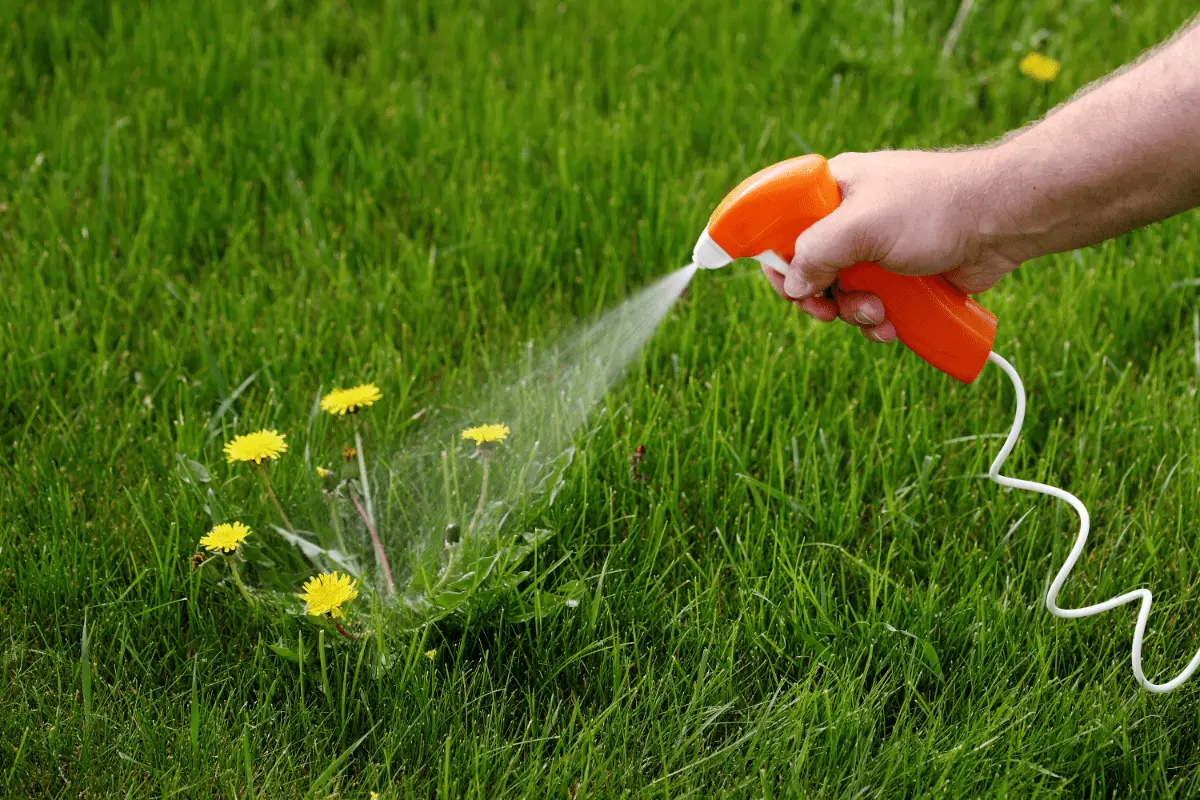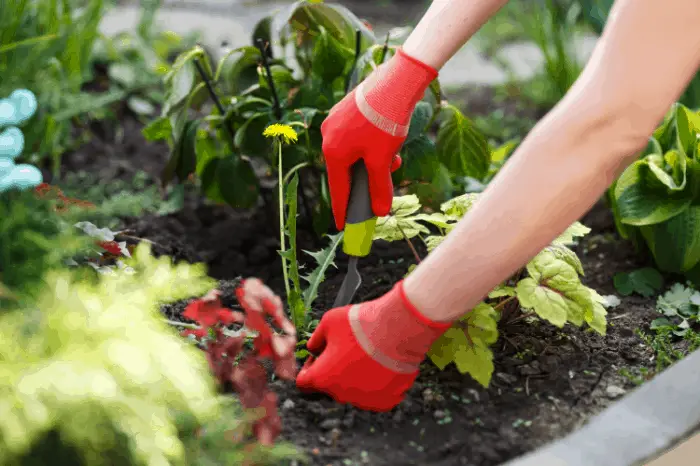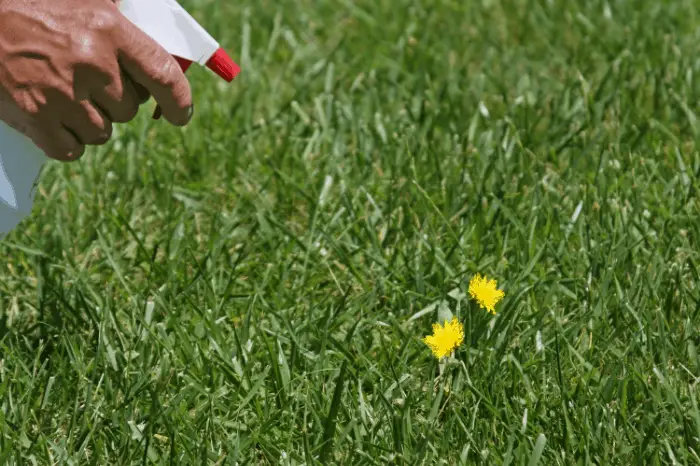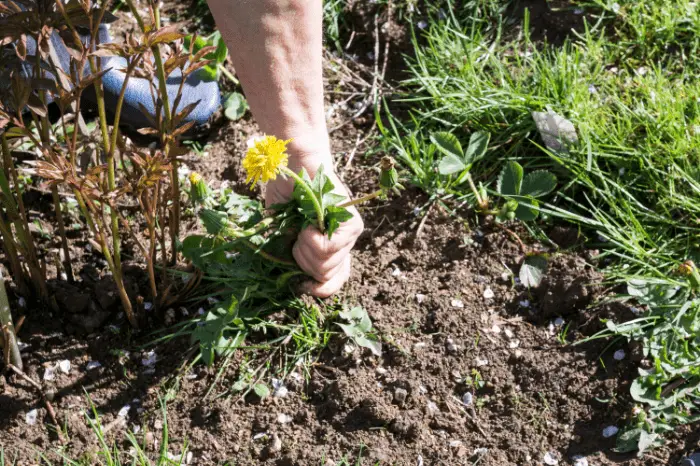Last Updated on December 28, 2021 by
Dandelions represent a class of one of the plant weeds called the broadleaves. These broadleaves can grow very thick, long, and healthy more than your garden plants. However, eliminating them will require you to find the best dandelion killer available out there.
Regardless of their numerous health benefits and how beautiful they seem to appear, dandelions should never be found a business in your garden, at least not if your garden is an ideal one. This is necessary because their presence is unhealthy for your plants.
Which is why in this article, we will bring to your knowledge, some of the best chemical terminators for dandelion, that will do a clean job without jeopardizing the existence of the plants they are attached to it.
But first, there are some things you should know.
Best Dandelion Killer: Why Dandelions Are a Problem
The glowing yellowish presence of dandelions as they cohabit with your garden plants is nothing but a big threat to the existence of your plants. This is because, for the most part, their duty is to drain all the nutrients out of the soil, thus leaving your plants impoverished.
And oftentimes, in a bid to fend Dandelions away from one’s garden, people tend to pluck them out whenever they spring up. Well, that’s never a bad idea except for the fact that their roots are often still rooted down the soil. Meaning, uprooting does nothing actually because they will rise again and continue from where they stopped in causing a scarcity of nutrients for your dear plants.
Remember, in order for your plants to thrive gloriously, they need all the nutrients they can possibly get, and fighting for it with dandelions, which are obviously stronger in such battles, is never a good option. You need to kill them completely and allow your plants to enjoy their essential nutrients independently.
Preventing its Return and Choosing the Best Dandelion Killers
Getting rid of these weeds if not properly done, will see them returning back, and this time, in a raging and devouring manner. Thus, you need dandelion killers to get the job done thoroughly given that hand plucking is never a solution in this kind of situation.
However, with the wide array of products out there, finding the right one would certainly be hectic, which is why I’ve compiled something for you. Something that will help you make an informed decision on what to buy. It’s a list of things you should consider when buying these weed killers in order to get the best one. So without further ado, here we go!
Organic or Synthetic
There are natural herbicides that can be used to terminate these dandelions and there are those that are made up of synthetic chemicals. The choice is yours, as both promises effective destruction of dandelions.
The synthetic killers or chemical killers are more effective than their organic counterparts and work even faster. However, there both have their pros and cons.
The major side-effect of using the chemical or synthetic one is that if you fail to be precautious, and they happen to make contact with your skin, they could harm you and leave a dent on your body.
And for the organic killers, even though they cause no harm when they come in contact with your body and that of your kids, still, they are extremely time-consuming, compared to the synthetic dandelion killers.
Thus if patience is not in your list of virtues and you can be more careful with handling chemicals, then the synthetic killers would certainly be your best bet!
Pre and Post-Appearance Herbicides
If you’ve made your choice of opting for the chemical killers, then you are open to two more options: killing these nuisances called dandelions right before they spring up or murder them in their adulthood.
If you choose the first option, it means you are going to be preventing them from showing up in your garden in the first place, by destroying their seeds using the herbicides.
And if you choose to go with the second option, that means, you’ll have to allow them to spring up, before killing them totally.
The first option might not guarantee you a wholesome result because, there is every chance that you are bound to skip some parts of the soil, out of omission.
And skipping out some parts of the soil will result in those dandelions showing up in areas where an attempt to prevent their growth were made.
But with the post-appearance method, you can be rest assured, you will pull a thorough job by killing them completely and ensuring they never appear in your garden again.
Designated or Total Destructive
There are some herbicides that wipe off virtually any plant it comes across, and that is no other than the total destructive herbicide. And as a word of advice, avoid such chemicals, as it will kill both your lovely plants and the dandelions in your garden.
Rather, go for herbicides that are made for pests(dandelions) only, not those that destroy anything that comes their way.
Persistent or Non-Persistent
Obviously, some products are made to last longer than others. Thus, opt for dandelion killers that last longer during the job, those known as the persistent killers. With them, you won’t have to worry about dandelions for months after spraying them.
On the other hand, we also have the non-persistent killers, which might be a lot cheaper, but I’m sure you know the aftermath of patronizing cheap as hell products.
Best Dandelion Killer: Climatic Considerations
This one is of sheer importance as the weather condition, can influence the effectiveness of the dandelion killer you bought. This is because some might get washed off by rain or might not work very well when the air is less humid.
Thus, look out for the ones that are suited for any kind of weather.
Best Dandelion Killer: Natural Weed Control
If you decide to go organic, the following list of organic dandelion killers are recommended;
- One earth weed control and organic fertilizer
- Pure Vinegar
- Alcohol
- Hot water
- Salt
- Epsoma Organic Weed Preventer
Best Dandelion Killer: Chemical Weed Control
For the synthetic alternatives of dandelion killers, the following are recommended;
- Southern Ag 2, 4-D Amine weed killer
- Scotts Turf Builder Weed and Feed Fertilizer
- Monterey LG 5600 Spurge Power Herbicide
- Roundup Extended Control
- Fertilome Weed-out Lawn Weed Killer
Conclusion
The presence of dandelions in the midst of your plants is unsafe and alters the growth course of your plants. But who says the problem can’t be fixed? With the best crop of dandelion killers, you can get rid of these intruding enemies without harming your plants.
I’ve outlined some of the best weed killers out there in the market that you can use depending on your choice between organic and chemical killers. And with some of the considerations listed in this article, I’m pretty sure you would make the best choice.
If you ask me to suggest the best dandelion killer for you, I would recommend you go for the chemical, designated, post-appearance, all-weather dandelion killer. And while making use of hem, don’t ever forget to always be precautious.
Feel free to use the comment box for your questions and inputs.
FAQs
What spray will kill dandelions but not grass?
Roundup is good for controlling a broad range of weeds including dandelions, crabgrass, clover, grasses and annual bluegrass. It also creates a barrier between the soil surface and the roots so they cannot take up water any longer.
What kills dandelions fast?
Dandelion seeds germinate quickly and grow into a large, dense mass of foliage that can be easily spotted. The best way to remove dandelions is by digging them out with a shovel or trowel, cutting them off near the ground with garden shears and water thoroughly after removing them from the ground.
How do you deal with dandelion infestation?
Dandelion infestation is a common problem in the summertime. The weed seeds are spread in open field and gardens by the wind, which can cause your yard to be full of these weeds. To prevent this problem, it is important to know how to deal with dandelion infestation.
How do you deal with dandelion infestation? One way would be using herbicide and digging up the roots of the weeds before they grow too deep. Another option would be using natural methods such as digging up the weed’s roots and burying them underground or even reducing their nutrition intake by removing their leaves, flowers or stalks.
What kills dandelions permanently?
Dandelions are not easy to kill because they have many ways of reproducing themselves and spreading through the ground. Some other methods of killing dandelions include fertilizers, herbicides, and cutting out the flowers at a young age before they can spread their seeds everywhere.
Should you pull the heads off dandelions?
One of the most common and puzzling questions that you will come across is whether it is good to pull the heads off dandelions. This question has a simple answer - it all depends on what you are doing with them. If you are plucking them out of your lawn so they can't grow back, then pulling the heads off will not do anything for you and could even cause more weeds to grow in their place. However, if you want to pick some flowers or use them for a craft project, then go ahead and pull those heads off!
Should you dig out dandelions?
We should dig out dandelions before they get too big so that they don't take up too much space in our garden. We should also make sure not to let them grow in our lawns because they are known to cause severe damage.
Do dandelions go away in summer?
Dandelions are perennial flowers that bloom in spring and summer. They grow best in dry and sunny weather with little to no rainfall.
It is said that dandelions go away in summer, but it is not true. Dandelions can survive the worst of the heat - even the scorching summer days. Dandelions are so well-adapted that they don't need rain or humidity at all to live.
Are dandelions bad for dogs?
Dandelions are a common thing that dogs may consume. This is because of the abundance of them in most gardens. Dandelions contain non-toxic chemicals which are not problematic for dogs.
The toxicity levels depend on the dandelion species, so there’s no such thing as one dandelion being safe and another being toxic. But it is important to consider that dogs should be supervised when ingesting anything.
Tony Manhart is a passionate gardener who has been tending to gardens for over 20 years. He takes pride in creating beautiful outdoor spaces with plants, trees, and shrubs that can thrive in any environment. He loves to share his knowledge with others and has taught classes on gardening basics and advanced techniques. He is committed to sustainability, using natural and organic methods to create and maintain gardens. He also works with local organizations to create green spaces for communities. When he’s not gardening, Tony enjoys hiking, reading, and spending time with his family.





